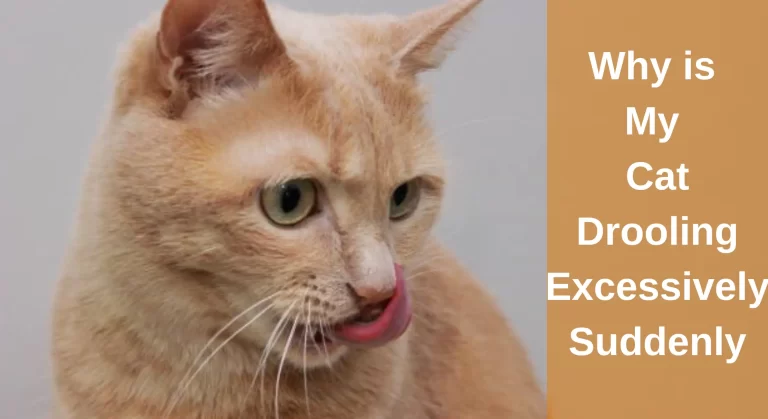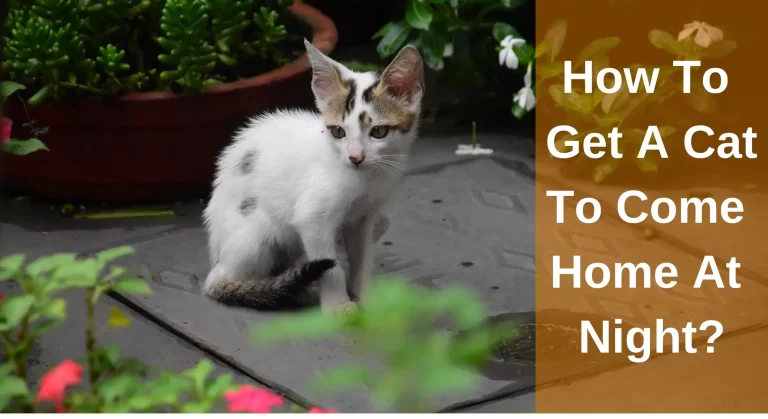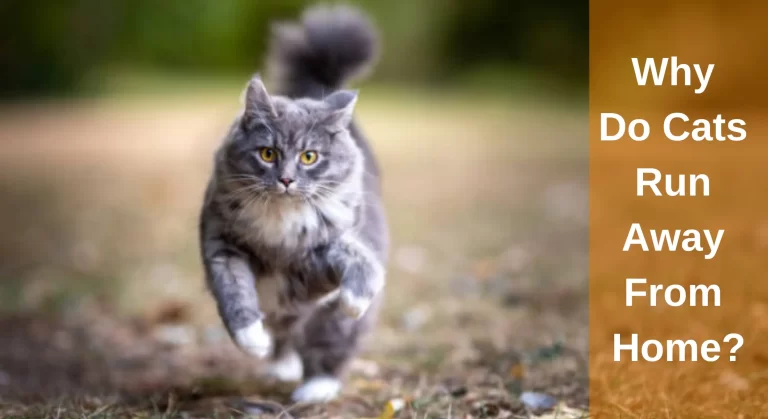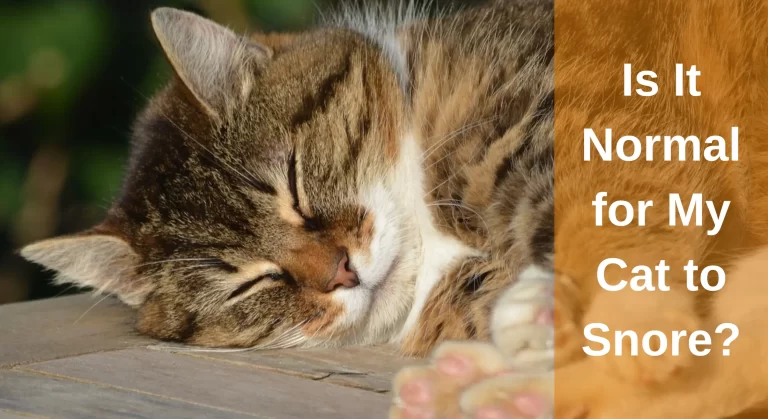Why Is My Cat Suddenly Pooping Outside of The Litter Box? 10 Reasons And Solutions
Has your cat started defecating or urinating outside the litter box without warning? It can be frustrating and even filthy to have to wipe up your cat’s, hmm, “prize” from the carpet. Most cat owners have had to deal with this issue at some point. If your cat is pooping outside the litter box on a regular basis or has recently started, you’re probably wondering, “Why is my cat suddenly pooping outside of the litter box”? What’s causing the problem, and how to solve it?
Cats are known to be clean animals that prefer to eliminate in a litter box. However, Pooping outside the litter box can be caused by several reasons. It could be due to medical issues such as urinary tract infections, digestive problems, stress or anxiety, litter box issues, or territorial disputes with other cats.
We’ll go through the top 10 reasons your cat could be pooping in banned areas, as well as some suggestions for stopping it and disposing of cat litter; read on.

Reasons Why Do Cats Poop Outside the Litter Box
Cats are clean and independent animals, which is why many pet owners choose them as their companions. However, even the most well-behaved cats can sometimes develop the habit of pooping outside their litter box.
If you are a cat owner, you may have faced this issue at some point. This problem can be frustrating and challenging to deal with, but understanding the reasons why cats do this can help you find a solution
1. Litter Box Is Filthy
It is natural for cats to prefer a litter box that is clean. If the litter box is dirty, you may find your cat pooping outside instead of in the box. Maintain a regular litter box cleaning routine at least once daily, and ensure the litter is changed every few days.
Cats dislike litter boxes that are filthy, and they will meow loudly before using the litter box to notify the owner. Check to see if the litter box is clean if you find the cat pooping randomly on the floor. These furry animals enjoy clean environments, so they’ll find another spot to waste themselves if the box fills up.
2. The Litter Box is Too Small
For cats to use the litter box effectively, they need enough space to move around and turn around. If the litter box is too small, your cat may find it uncomfortable to use, leading them to poop outside the box. Consider buying a larger litter box if you have a larger cat or multiple cats.
3. Using Inappropriate Cat Litter
Choosing the right litter for your cat can be a challenge because cats are very picky about it. Some may not like the texture or smell of certain litter, causing them to avoid the litter box altogether. To find a cat-friendly litter, experiment with different brands and types.
There are a few characteristics of the litter you’ve been buying that your cat might not like. It might be a texture, odour, quality, or quantity issue. All of these features are important to your picky furry friend, so you won’t be able to solve the problem unless you try a few different approaches.
4. Territorial Delimitation
Cats are territorial animals and may use poop to mark their territory. And if a new person or animal enters their territory, they might become agitated.
An example is a new pet, a new baby, or unexpected visitors. Other pets might also trigger instinctive territorial behaviors in the area or wildlife near the house.
If your cat feels threatened or has other cats in the house, they may start pooping outside the litter box to mark their territory.
If your cat is pooping outside the litter box in a specific area, it may be marking that spot as its own. It may be a good idea to place a litter box there instead of that area to encourage them to use it.
Find Out: Can Cats Find Their Litter Box If You Move It?
5. Medical Disorders
Cats can develop health issues that affect their bathroom habits. Some of the common health issues that can cause cats to poop outside the litter box include urinary tract infections, Irritable bowel illness, constipation, thyroid disorders, and diarrhea.
The vet should also be consulted if your cat displays other symptoms, such as lethargy or loss of appetite.
6. Behavioural Issues
Certain behavioral problems in cats may cause them to poop outside the litter box. Any disruption in their routine may cause them distress. When they are upset, cats might defecate outside the box. This might be due to a variety of factors, including:
- The arrival of new pets in the home is a happy occasion.
- Conflicts with other pets or cats in the neighbourhood are possible.
- Loud noises.
- The litter box is being moved into your house.
- Changes in their typical eating regimen, whether you’re remodeling or relocating.
- You’ve welcomed new members of your family into your house.
Also, Check Out: Why Cat Peeing Over Edge of Litter Box?
7. Stress and Anxiety
Cats are sensitive creatures and can become stressed or anxious for a variety of reasons. Changes in their environment, such as moving to a new home or the introduction of a new pet, can trigger stress and lead to pooping outside the litter box.
Because they are terrified, some cats will engage in this behaviour. Noise or strangers in the house and other animals inside or outside the house may cause your cat to become frightened and make a fast decision, such as pooping in the kitchen or living room. While this is a rare panic response in cats, it does happen, particularly in kittens.
Try to minimize stress by providing your cat with a comfortable and safe space, and consider using pheromone sprays or diffusers to help them relax.
8. Age
Several cats may develop arthritis as they age, making it difficult to climb into and out of a litter box. If your cat finds it challenging to climb into the litter box, it may start pooping outside of it.
Consider buying a litter box with lower sides so that they can get in and out more easily.
9. Litter-Untrained
If you adopt a stray, you could find out that it doesn’t know how to use the litter box. The lack of litter boxes in hotels is the reason behind this. Instead, they dig a hole in the ground, perform their work, and then cover it with more soil.
10. There Aren’t Enough Litter Boxes
If you have multiple cats, they may be competing for the same litter box. Consider adding an extra litter box or two to reduce competition.
Leaving many cats with a single litter box is never a good idea. Shared litter boxes get filthy much faster, and the odours can turn either of your cats off.
Check Out: Litter Box Ideas for Multiple Cats – Top Solutions
How to Stop Your Cat from Pooping Outside the Litter Box
Cats are lovely pets, but they can sometimes develop the habit of pooping outside the litter box. This can be frustrating for pet owners and can even lead to a strained relationship with the pet. If you’re facing this issue, don’t worry; we’ve got you covered.
Following are the methods by which you can prevent your feline from outside the litter box:
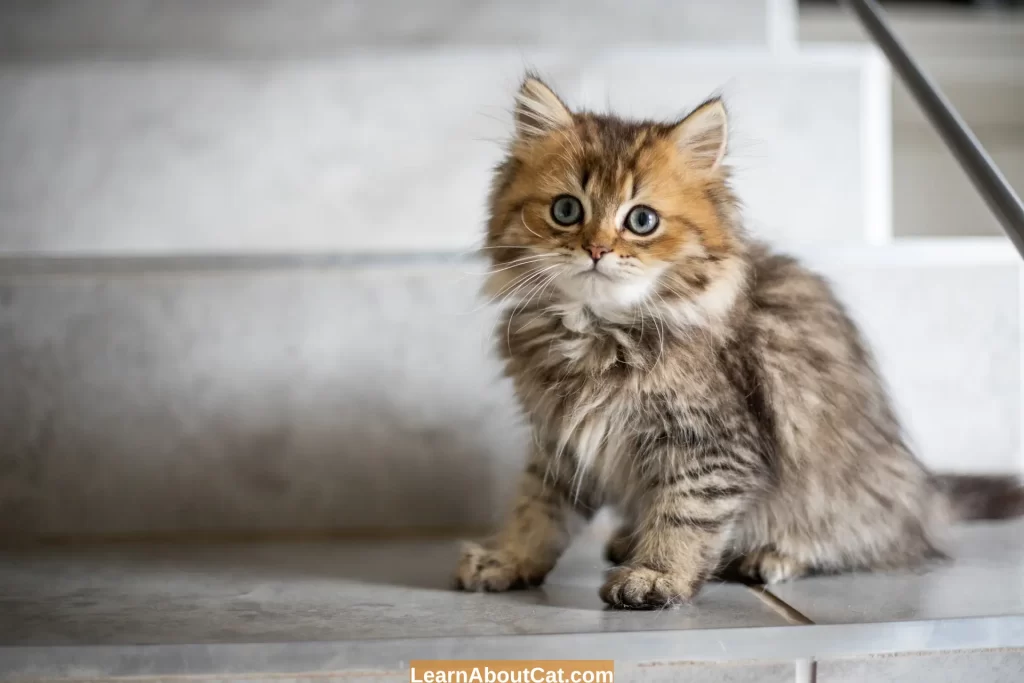
1. Litter Box Should be Clean
Cats prefer a clean litter box, and if it’s dirty, they may avoid using it. Maintain a clean litter box by cleaning it at least once daily and replacing it every two to three weeks. In this way, the litter box will remain fresh and unpleasant odors will not accumulate.
Make the litter box more inviting. If your cat is still not using the litter box, try a new one. Some cats prefer a covered litter box, while others prefer an open one. You should experiment with several types until you find one that works for your cat.
2. Use the Right Type of Litter
The litter that cats prefer varies from one cat to another. Some cats prefer fine-grain litter, while others prefer larger, coarser litter.
Finding the right kind of litter your cat likes is important. If they don’t like the litter, they might not use the litter box. Find the right type of litter for your cat by experimenting with different types.
If your cat likes a certain litter, try to stick with it. It may be a good idea to switch to an unscented clumping litter.
Intresting Reading: What Can I Use Instead Of Cat Litter? Top 10 Alternatives
3. Use Multiple Litter Boxes
A litter box for each cat is essential if you have more than one. Cats are territorial animals, so they might not want to share litter boxes. Having multiple litter boxes will give your cats more options and may help prevent them from pooping outside the litter box.
4. Changing the Litter Box’s Location
Your cat needs privacy when using its litter box, so make sure you place it in a quiet, private area that your cat is comfortable using. Avoid placing the litter box in high-traffic areas, such as the kitchen or living room, as this may make your cat uncomfortable.
Keep the litter boxes calm, and stress-free to reduce potential stressors. Cats might be stressed by things that have no direct influence on us.
5. Address Any Medical Issues
Sometimes, cats may poop outside the litter box due to medical issues. If you’ve tried the above tips and your cat is still pooping outside the litter box, it’s essential to take them to the vet. The vet can rule out any medical issues that may be causing the behavior.
Most cats will resume utilising the litter box after resolving the health issue. Keeping those annual health examinations is a great way to minimize future pooping outside the litter box.
6. Reduce Stress and Anxiety
If your cat is pooping outside of the litter box due to stress or anxiety, take steps to reduce their stress levels. You can do this by providing a comfortable and safe environment for your cat, maintaining a regular routine, and providing toys and activities to keep them occupied.
7. Use Positive Reinforcement
If your cat doesn’t use the litter box, you can train them by placing them in it after meals and praising them when they use it.
Cats are trained effectively through positive reinforcement. Giving your cat a treat after using the litter box is one of the most effective ways to train them. As a result, they will keep using the litter box if they are encouraged to reinforce the behavior.
8. Block Access to Problem Areas
If your cat is pooping in a specific area of the house, block access to that area. You can use baby gates, doors, or other barriers to prevent your cat from going there.
9. Provide Enrichment
It is important for cats to stay mentally and physically stimulated in order to remain healthy and happy. Provide your cat with toys and playtime to keep them entertained and prevent boredom if they’re bored. They’ll poo outside the litter box to get your attention if they’re bored.
10. Consider Behavior Modification
If your cat continues to poop outside the litter box despite your best efforts, it may be time to consider behavior modification. This involves working with a professional cat behaviorist to address the issue.
A behaviorist can help you identify the underlying cause of the behavior and develop a plan to stop it.
When to Call the Vet
You need to figure out what the cause is if your cat is pooping outside the litter box suddenly. While some cases can be resolved with simple changes, others may require medical attention.
If you notice any changes in your cat’s behavior, appetite, or bowel movements, it is always best to consult with your vet. They can perform a thorough physical exam, run diagnostic tests, and recommend a course of treatment to help your cat feel better and get back to using the litter box regularly.
What Is the Best Way to Teach Your Cat to Use the Litter Box?
Follow these steps to litter train a kitten:
- Place your cat in one of the boxes after meals and when he wakes up from naps. Politely move them into the litter box if they need to excrete or defecate.
- Place the cat inside the boxes as soon as they arrive and let them examine and sniff them.
- They should not be penalised or condemned in any way. This will add to the stress and anxiety, making training more difficult.
- Give them a prize if you notice them using it. Appreciate giving them a reward.
How to Dispose of a Litter Box and Replace It?
Follow these instructions to replace the litter box:
- Place a garbage bag over the end of the litter box and tilt it up to catch all of the litter. Using the litter scoop or similar item, scrape any cat litter adhered to the bottom of the litter pan.
- Wash the litter box with soap and water. A scrub brush with bristles comes in useful, and your bathtub is ideal for this activity. Chlorine bleach should never be used since it emits a harmful gas.
- Dry the cat box with paper towels.
- 3-4 inches of additional litter should be added to the existing pile.
Also Read: How to Keep Cat Litter Off the Floor? Top Tips
Frequently Asked Question
How do I know if my cat is experiencing a medical issue?
Watch for signs such as changes in appetite, lethargy, vomiting, or diarrhea. If you notice any of these symptoms, visit a veterinarian immediately.
How can I make the litter box more appealing to my cat?
Cats prefer a clean and spacious litter box that is easily accessible. Make sure you clean the litter box frequently and consider purchasing a larger litter box or one with a cover.
Do cats poop in self-defense?
When cats feel threatened, they can either fight, flee or freeze in response to the object, person, or situation they perceive as threatening. When cats are frightened, they lose control of their bladder and bowels, causing them to eliminate right on the ground. Every cat has his/her preferred way of coping with a crisis.
Final Words!
Dealing with a cat that is pooping outside the litter box can be frustrating and stressful. Nevertheless, with the right approach, you will be able to correct the behavior and prevent it from occurring again. When trying to correct the behavior, remember to be patient and consistent and seek professional assistance if needed.
Your first aim should be to provide your cats with a safe and tranquil environment. Because many cats are uneasy as a result of their changing lifestyles, they want peace and quiet. If you discover the litter box or litter is the problem, you may immediately seek alternatives. However, a visit to the veterinarian is still required.
Related Posts:
Who is Isabella?
My name is Isabella, and I am a dedicated and knowledgeable cat enthusiast. With years of experience caring for cats and a deep love for felines, I made a mission to help other cat lovers navigate the challenges of cat ownership.

